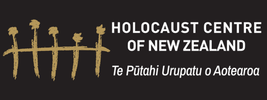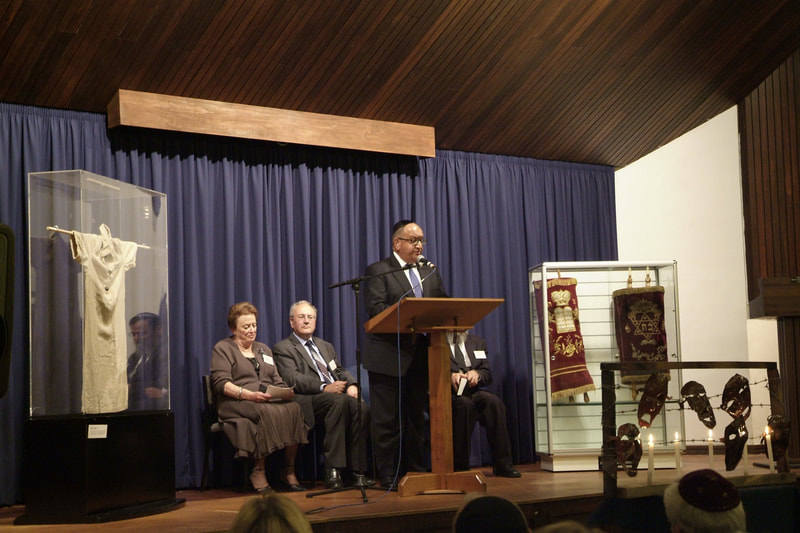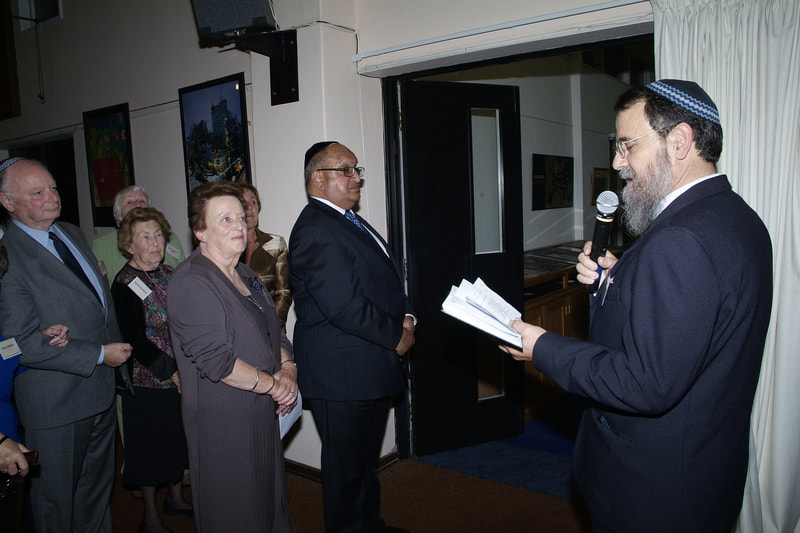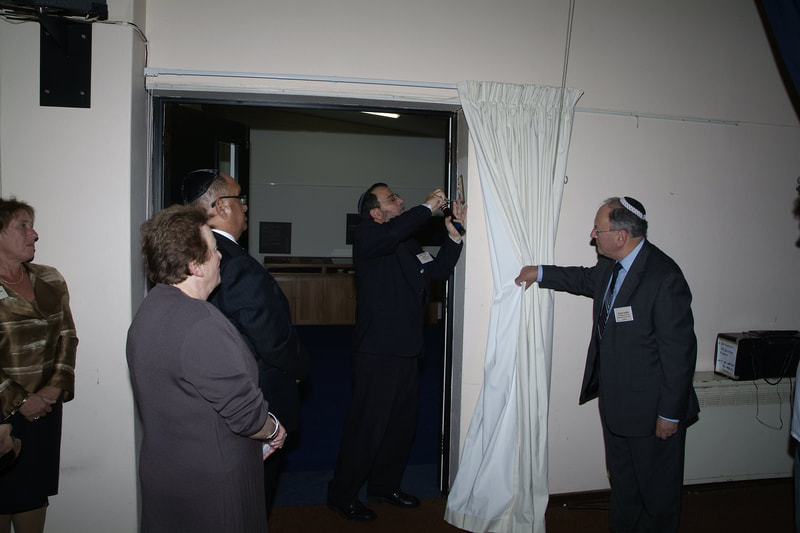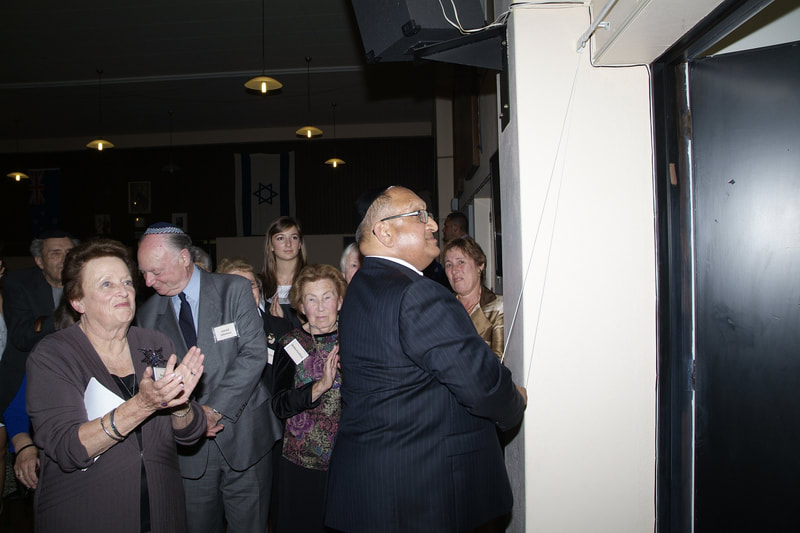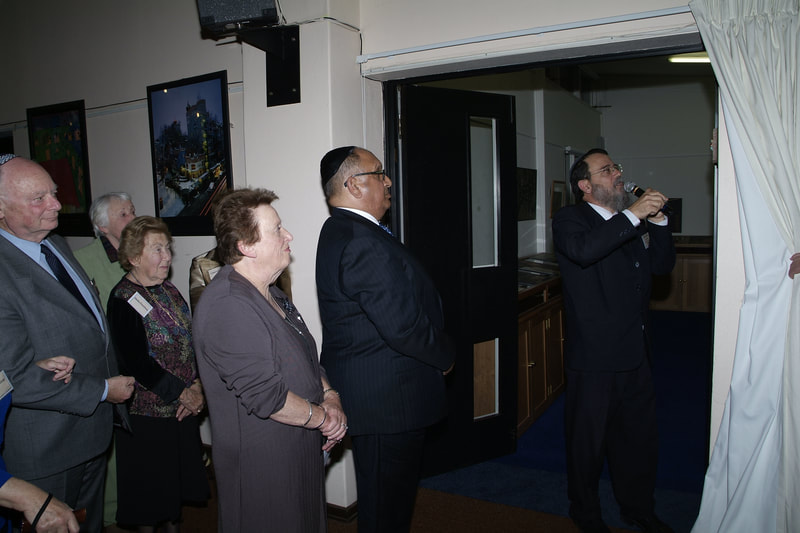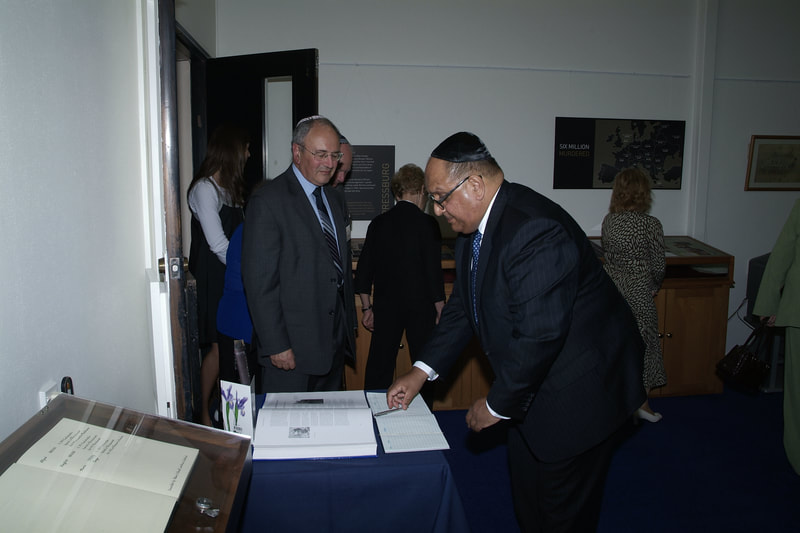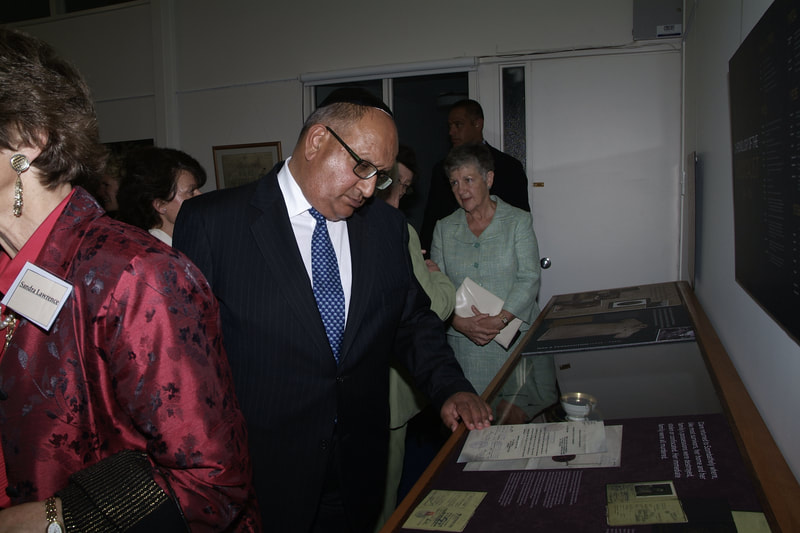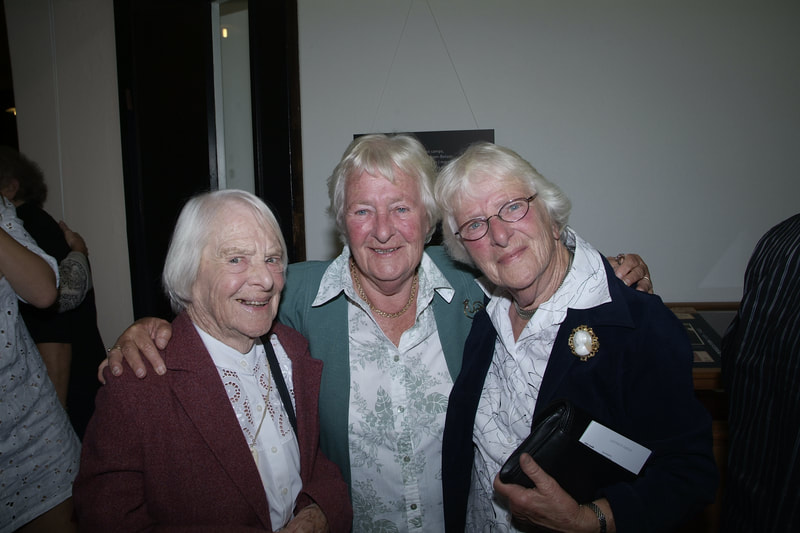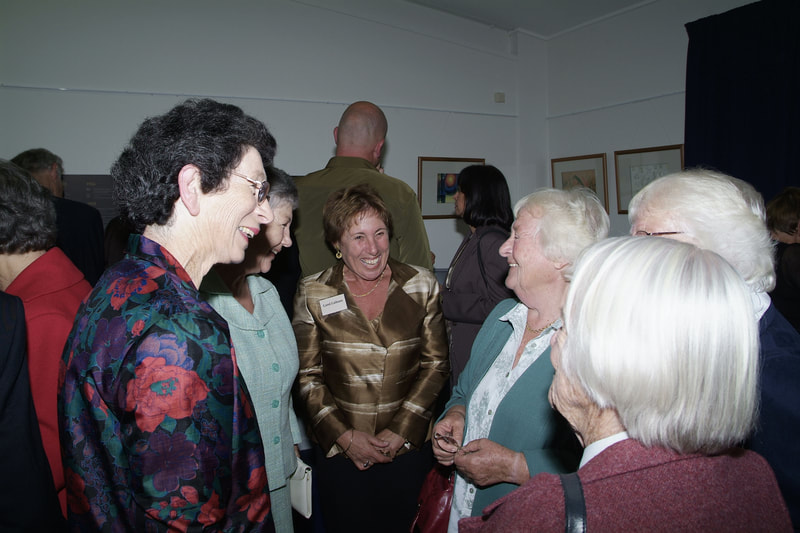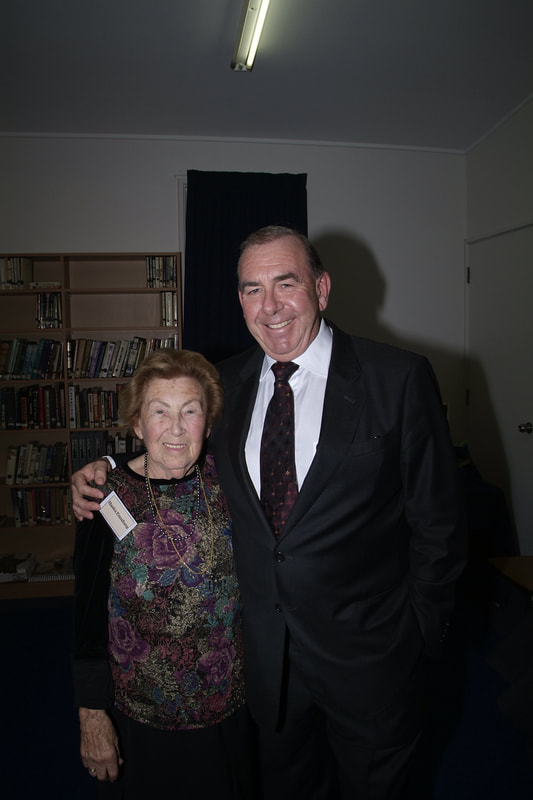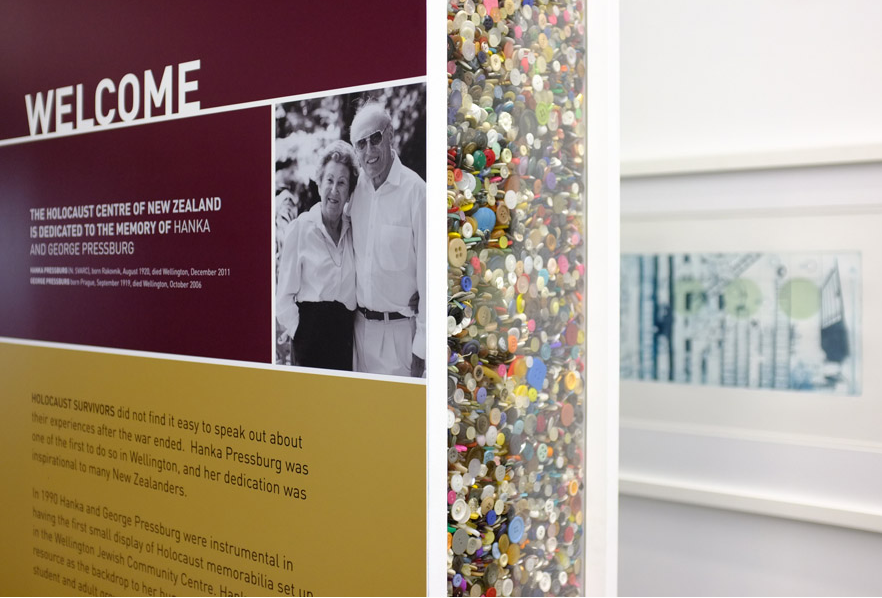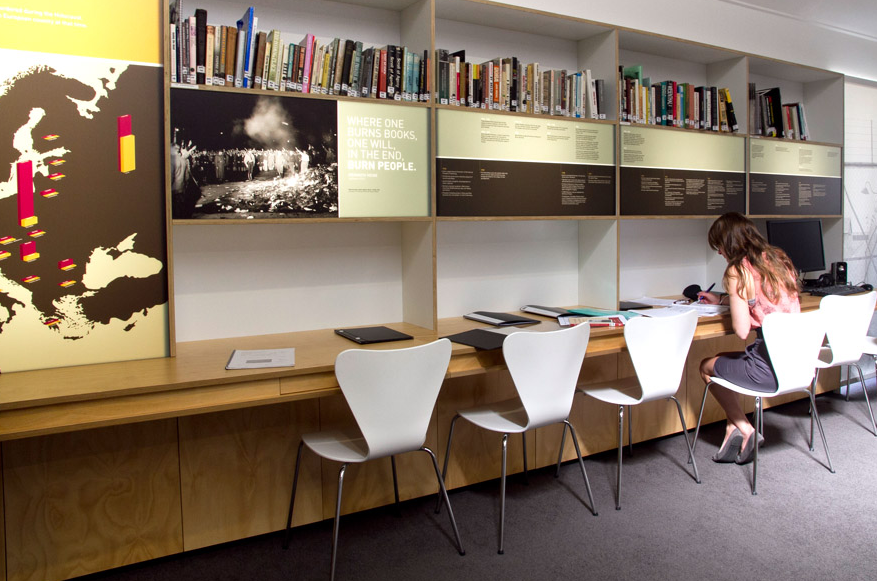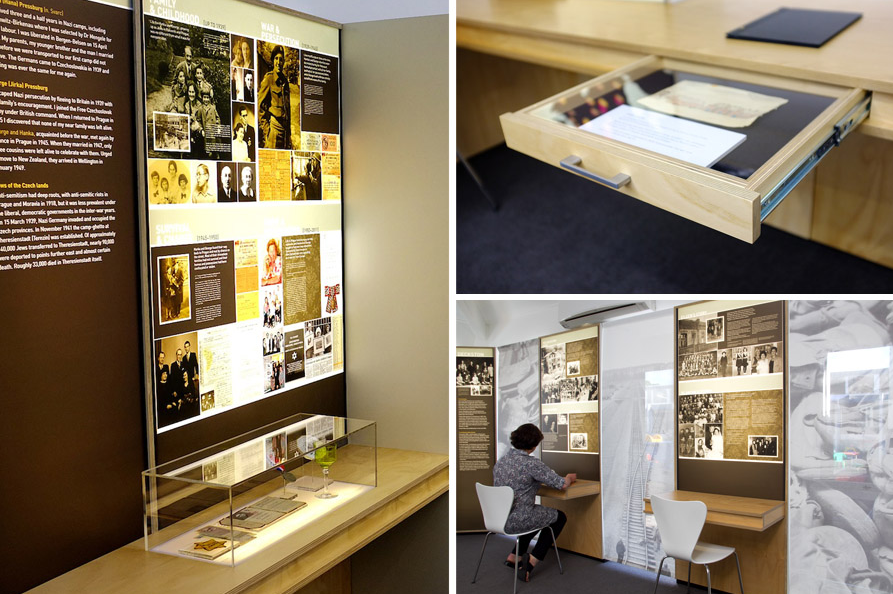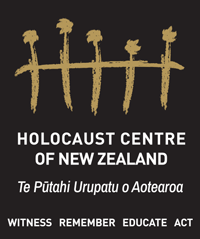HCNZ HISTORY
“The Holocaust Centre of New Zealand was founded to honour the survivors who came here, cherish the memories of those who were murdered, and teach the relevance of the Holocaust to New Zealand society.”
– Steven Sedley MNZM, Founding Chair
The Holocaust Centre of New Zealand was established in 2007.
Founded by a small group of Holocaust survivors, children of survivors and refugees, their purpose was inspired by Hanka and George Pressburg, the pioneers of Holocaust education in New Zealand. Hanka and George originally created a small display of Holocaust artefacts in the Van Staveren room of the Wellington Hebrew Congregation, and talked to groups of students and visitors about Hanka's personal experiences surviving Theresienstadt, Auschwitz and forced labour in Hamburg.
A dedicated committee, coordinated by Steven Sedley MNZM, a Wellington-based Holocaust Survivor from the Budapest Ghetto, held their first committee meeting on 19 June 2005.
The need for a Holocaust Centre had been further highlighted by the 2004 desecration of the Jewish section of Makara cemetery (headstones vandalised and the chapel torched) and of Bolton St cemetery, and also from the interest of the community at large after the first UN International Holocaust Remembrance Day event in New Zealand in 2005. NZ Herald / VUW report The Wellington Cemetery Desecrations of 2004: Their Impact on Local Jews
Yom HaShoah (Yom HaZikaron laShoah ve-laG'vurah)'Holocaust Remembrance Day' had been observed by the Jewish community in years prior, then in 2005 the UN General Assembly adopted a resolution to designate 27 January as International Holocaust Remembrance Day. A memorial service was held by the Wellington Hebrew Congregation in the Beth El synagogue under Rabbi Lipman. The synagogue was full, and many in attendance were not Jewish.
Founded by a small group of Holocaust survivors, children of survivors and refugees, their purpose was inspired by Hanka and George Pressburg, the pioneers of Holocaust education in New Zealand. Hanka and George originally created a small display of Holocaust artefacts in the Van Staveren room of the Wellington Hebrew Congregation, and talked to groups of students and visitors about Hanka's personal experiences surviving Theresienstadt, Auschwitz and forced labour in Hamburg.
A dedicated committee, coordinated by Steven Sedley MNZM, a Wellington-based Holocaust Survivor from the Budapest Ghetto, held their first committee meeting on 19 June 2005.
The need for a Holocaust Centre had been further highlighted by the 2004 desecration of the Jewish section of Makara cemetery (headstones vandalised and the chapel torched) and of Bolton St cemetery, and also from the interest of the community at large after the first UN International Holocaust Remembrance Day event in New Zealand in 2005. NZ Herald / VUW report The Wellington Cemetery Desecrations of 2004: Their Impact on Local Jews
Yom HaShoah (Yom HaZikaron laShoah ve-laG'vurah)'Holocaust Remembrance Day' had been observed by the Jewish community in years prior, then in 2005 the UN General Assembly adopted a resolution to designate 27 January as International Holocaust Remembrance Day. A memorial service was held by the Wellington Hebrew Congregation in the Beth El synagogue under Rabbi Lipman. The synagogue was full, and many in attendance were not Jewish.
Ken Gorbey CNZM, a museum consultant and former Project Director of the Berlin Jewish Museum was instrumental in facilitating the philosophy and physical structure of the exhibition space.
The Centre, originally named the Wellington Holocaust Research and Education Centre, was officially opened by the Governor General of New Zealand (Hon. Sir Anand Satyanand) on 15 April, 2007.
In his speech, the Governor-General noted:
The Centre, originally named the Wellington Holocaust Research and Education Centre, was officially opened by the Governor General of New Zealand (Hon. Sir Anand Satyanand) on 15 April, 2007.
In his speech, the Governor-General noted:
“The Centre will enhance the New Zealand understanding of the Holocaust”.
Indeed, the focus of the Centre has always been the Holocaust and the connection to New Zealand, especially the Survivors who have contributed richly to New Zealand’s cultural and business landscape.
The Centre’s displays and educational material recount the experiences of Holocaust survivors who found refuge in New Zealand and include:
- The story and a portion of a collection of buttons (an educational project of Moriah College - Wellington Jewish Day School), illustrating the enormity of the murder of 1.5 million children, most of whom were Jewish. (see Children's Holocaust Memorial)
- A map of Europe's Jewish population pre and post WWII, showing the impact of the Holocaust on the population.
- Panels devoted to the Deckston Orphanage highlighting New Zealand as a safe refuge; the Polish children who came in the 1930s survived, while almost all the families they left behind were murdered.
- The Universal Declaration of Human Rights, prominently displayed, as the response of a stunned world to the unprecedented slaughter of millions because of their race or beliefs.
- Stories of two Holocaust survivors of Auschwitz - Hanka Pressburg and Clare Galambos Winter.
From the beginning, Holocaust education has been the Centre’s central focus. Every year, hundreds of students visit from around the country to study an aspect of the Holocaust within the context of the New Zealand school curriculum, and teachers are provided with resources to teach this vast and often challenging subject in their schools.
In 2012, the name ‘Holocaust Centre of New Zealand’ was formally adopted, to reflect the Centre’s national reach as the only institution within the country devoted to Holocaust education, and the Centre moved to larger premises within the Wellington Jewish Community Centre, enabling more expansive displays and the ability to accommodate 30+ students. The Holocaust Centre of New Zealand was opened on Yom HaShoah, 19th April 2012 by the Chief Human Rights Commissioner David Rutherford,
In the press release of Thursday, 5 April 2012, Inge Woolf, Founding Director of the Centre, explained;
“Most cities in the world have a place of remembrance for those who died in the camps. The Jewish community in Wellington has been active in the capital for over one hundred years and so we as a Jewish community are delighted to give something back to the city that has looked after us. We believe a purpose-built facility designed to international standards of excellence will continue to add credence to Wellington being a centre of multicultural significance. We will be joining other international cities such as Los Angles, New York , London , and Berlin in remembering the Holocaust. Already numerous school groups have learnt and understood the significance of the Holocaust by visiting the existing centre. Now with national recognition I am sure this will appeal to a wider cross section of the community.”
“The Holocaust Center is an asset for all New Zealanders to reflect on the importance of harmony, diversity, resilience and survival,” said Mayor Celia Wade-Brown. “The centre’s contribution to understanding and overcoming racial prejudice, hatred and oppression is important.”
In 2012, the name ‘Holocaust Centre of New Zealand’ was formally adopted, to reflect the Centre’s national reach as the only institution within the country devoted to Holocaust education, and the Centre moved to larger premises within the Wellington Jewish Community Centre, enabling more expansive displays and the ability to accommodate 30+ students. The Holocaust Centre of New Zealand was opened on Yom HaShoah, 19th April 2012 by the Chief Human Rights Commissioner David Rutherford,
In the press release of Thursday, 5 April 2012, Inge Woolf, Founding Director of the Centre, explained;
“Most cities in the world have a place of remembrance for those who died in the camps. The Jewish community in Wellington has been active in the capital for over one hundred years and so we as a Jewish community are delighted to give something back to the city that has looked after us. We believe a purpose-built facility designed to international standards of excellence will continue to add credence to Wellington being a centre of multicultural significance. We will be joining other international cities such as Los Angles, New York , London , and Berlin in remembering the Holocaust. Already numerous school groups have learnt and understood the significance of the Holocaust by visiting the existing centre. Now with national recognition I am sure this will appeal to a wider cross section of the community.”
“The Holocaust Center is an asset for all New Zealanders to reflect on the importance of harmony, diversity, resilience and survival,” said Mayor Celia Wade-Brown. “The centre’s contribution to understanding and overcoming racial prejudice, hatred and oppression is important.”
“So we who survived have a duty to those that did not to make sure that in this wonderful country of ours, every single person is taught what can happen in even the most civilized society, when governments not only do not protect all their citizens regardless of color or creed but allow discrimination and intolerance to flourish.” -Inge Woolf, Founding Director (Times of Israel, April 2012)
To enable New Zealand educators to gain a deeper understanding of the Holocaust and to enhance their skills in teaching the subject, the Centre established a program in 2013, initiated by Inge Woolf, to send a group of NZ teachers to the International School for Holocaust Studies at Yad Vashem, the renowned Holocaust museum and research centre based in Jerusalem. This has become a biannual programme, named the Inge Woolf Memorial Seminar for NZ Educators at Yad Vashem, with approximately 25 educators attending on each trip.
Commemoration is also an important role for the Centre;
What started from small beginnings is now an occasion that attracts eminent politicians, diplomats, church and civic dignitaries and large numbers of the general public, with support from the New Zealand National Commission for UNESCO, local councils, Jewish organisations and congregations, and the New Zealand Human Rights Commission.
With constantly expanding activities, over time, full time and part time staff were appointed.
Over the years, the Holocaust Centre has become an integral feature of the nation’s capital and wider New Zealand museum, tourist and cultural landscape. Its activities and public profile is ever increasing.
What started as a project by a small dedicated group of volunteers, Holocaust survivors and descendants, more than a decade ago, has evolved into a successful, vibrant organisation. In the next phase of the Centre’s growth, investment in digital and social media education and engagement will be a focus.
- United Nations International Holocaust Remembrance Day events are held by HCNZ on January 27th, starting in Wellington in 2008, later adding in Auckland, Christchurch, and now also Hamilton, Nelson, and Dunedin.
- Concerts are held annually in remembrance of Kristallnacht, Nov 9 - 10, 1938.
- Yom HaShoah is observed on the 27th day in the month of Nisan.
What started from small beginnings is now an occasion that attracts eminent politicians, diplomats, church and civic dignitaries and large numbers of the general public, with support from the New Zealand National Commission for UNESCO, local councils, Jewish organisations and congregations, and the New Zealand Human Rights Commission.
With constantly expanding activities, over time, full time and part time staff were appointed.
Over the years, the Holocaust Centre has become an integral feature of the nation’s capital and wider New Zealand museum, tourist and cultural landscape. Its activities and public profile is ever increasing.
What started as a project by a small dedicated group of volunteers, Holocaust survivors and descendants, more than a decade ago, has evolved into a successful, vibrant organisation. In the next phase of the Centre’s growth, investment in digital and social media education and engagement will be a focus.
Images from 15 April 2007
IMAGES FROM 2012 below
